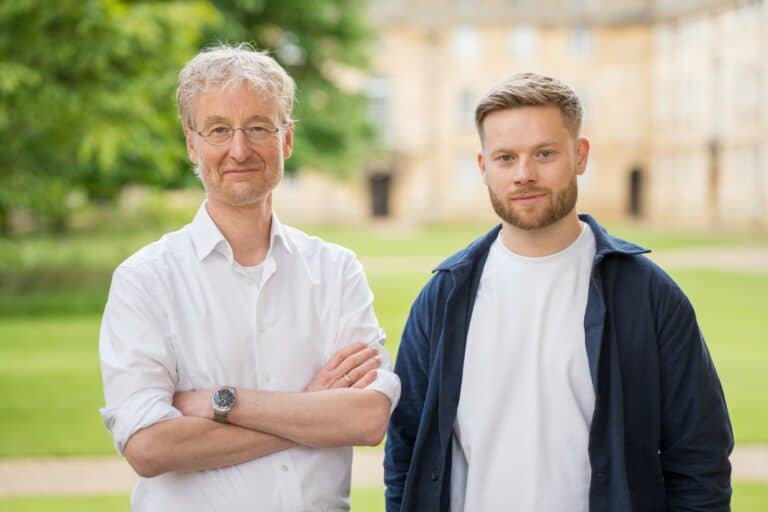Company of Professor Max Welling, affiliated with the University of Amsterdam and formerly employed at Microsoft and Qualcomm, among others, and chemist Dr. Chad Edwards, with a history at Google and BASF, among others, receives investment of 30 million euros. This should strengthen the company’s singular and special mission.
We write a lot these days about generative AI (GenAI). However, most of those articles deal with applications designed to improve the infrastructure, systems and processes of organizations. CuspAI focuses on something completely different. It deploys GenAI to address one of the main challenges of our time, which is to make a sustainable future possible. CO2 (carbon dioxide) plays an important role in this. First of all, the goal is to emit as little of it as possible. However, something also needs to be done about capturing and storing CO2. That is what CuspAI is focusing on.
CuspAI
CuspAI uses GenAI to generate new materials. You can think of the platform as a search engine, but not just for existing materials, but for all potential molecules and materials out there. This specifically involves materials that have CO2 as one of their components. In this way, it becomes possible not only to capture CO2, but also to capture it in a new material. On demand, CuspAI’s AI generates the possible molecular structures and optimizes them to ensure that they meet the specified criteria.
Investors see future in CuspAI
Carbon dioxide capture and sequestration, as mentioned, is high on the wish list in the fight against greenhouse gases. Indeed, it is a market that ExxonMobil believes will be worth as much as $4 trillion by 2050. That means investors need to act now, if they want to get in at the beginning. With today’s announcement that CuspAI has raised 30 million euros in seed capital, we now see that happening.
Founders Welling and Edwards have a proven track record in the (academic) disciplines in which they specialize. That offers prospects for a successful launch and future for CuspAI. Geoffrey Hinton, also known as The Godfather of AI, is also enthusiastic about CuspAI. He is taking a seat on the company’s board.
Finally, CuspAI has entered into a partnership with Meta. This specifically involves Meta’s so-called Fundamental AI Research (FAIR) team. This – together with Georgia Tech – is engaged in the OpenDAC research project. DAC stands for Direct Air Capture, the removal of carbon dioxide from the atmosphere. Together, the parties involved think they can move forward with this.
